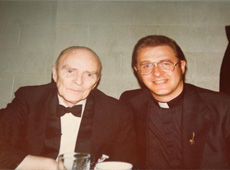Important challenges ahead for nationalism
Posted By: August 17, 2015
Tom Kelly.Irish News (Belfast). Monday, August 17, 2015
ON Saturday, along with Senator Thomas Byrne from Fianna Fáil and his challenger in Meath, Sinn Féin’s Darren O’Rourke (later replaced by local SF MLA Chris Hazzard), I took part in an inaugural summer school in Killough.
The event was organised by the political editor of this paper, John Manley, and blogging commentator Chris Donnelly under the auspices of Slugger O’Toole.
My SDLP baggage/pedigree followed me to the summer school as I was identified as a former vice chair. As a party member and election apparatchik for nearly 20 years, I guess my political views are sculpted by SDLP values, even if my vote is more reluctantly given these days.
Despite this, or in spite of it, I found myself defending the honourable record of the SDLP, albeit still welcoming of new entrants onto the pitch.
The title of the seminar was ‘What next for nationalism?’ and a well researched paper was presented by Chris Donnelly which was based on electoral and demographic information, and raised the question of whether the United Ireland project had been parked by the main nationalist parties.
He suggested that no single party, which defined itself as nationalist, had spelled out a route map as to how to get there. He also said that those political parties who notionally advocated a unified Ireland, in whatever shape that takes, had not tackled how the British identity would be accommodated within a New Ireland.
The panel then responded to that paper. I don’t intend outlining all the views expressed by my co-panellists, for a start I wouldn’t do justice to them.
Suffice to say that Thomas Byrne from Fianna Fáil and both Sinn Féin representatives are the ‘new look’ of their respective parties. Their voices are not forged by the past but the future.
And whilst Sinn Féin still have a tendency to dole out the party line no matter how ridiculous it sounds, both individuals at least attempted to deal with the here and now.
Their language was very welcome and suggested that Sinn Féin has a delicate balancing act taking forward that generation bred on a diet of Sean South, the Holy Mother Church and Wolfe Tone ballads rather than Wolfe Tone values.
Chris Hazzard was particularly illuminating in saying that he, like me, found the definition of nationalist too negative and narrow.
Senator Byrne is exactly the sort of politician Fianna Fáil needs going forward; open, articulate and rooted in the community in which he wants to serve.
He too was revealing in his comments, particularly about Fianna Fáil actively recruiting elected representatives after the 2015 assembly elections in preparation for the long awaited arrival of Fianna Fáil in 2019.
It was also encouraging to hear him say that he personally believed that on entering the Northern electoral bear-pit that Fianna Fáil should adopt a pragmatic approach to the Westminster elections by taking their seats. As he pointed out, many Labour MPs make a mockery of the oath taking.
There is clear evidence that the nationalist vote in Northern Ireland has declined while the demographic evidence points to a growing Catholic population.
The fight is definitely on for both unionism and nationalism to set out their stalls for what is the best way forward either to remain within the UK or join up with a united Ireland.
But the solution does not lie in numbers alone – the North was created by a fear of numbers and re-igniting that fear won’t create a united Ireland. The Belfast Agreement affirmed the supremacy of the ballot box and the Irish parliamentary tradition over militant force.
The 1916 commemorations should be seen in the context of their time and not as justification for the aftermath of the Civil war or the Troubles.
The SDLP will not, as some think, die away. When Adams and McGuinness finally depart the electoral scene, there will be no iconic figures left from the era of the Civil Rights or the Troubles and, to be frank, this is necessary if we are to move away from divisions based on the turmoil created by the protagonists of that time.
Fionnuala O’Connor once wrote a book called ‘Catholics in Search of a State’ but based on the electoral and demographic statistics since 1998 and the achievement of full equality, it would seem for the moment anyhow, that many nationalists were looking for a place in the State and aren’t too bothered to look outside of it. And therein lies the challenge.










